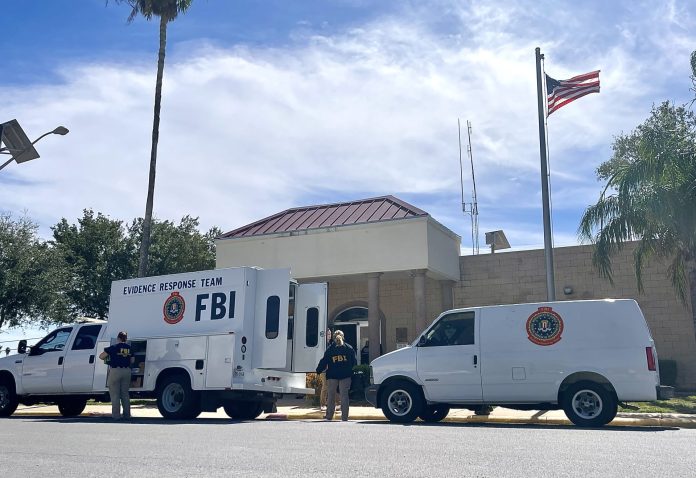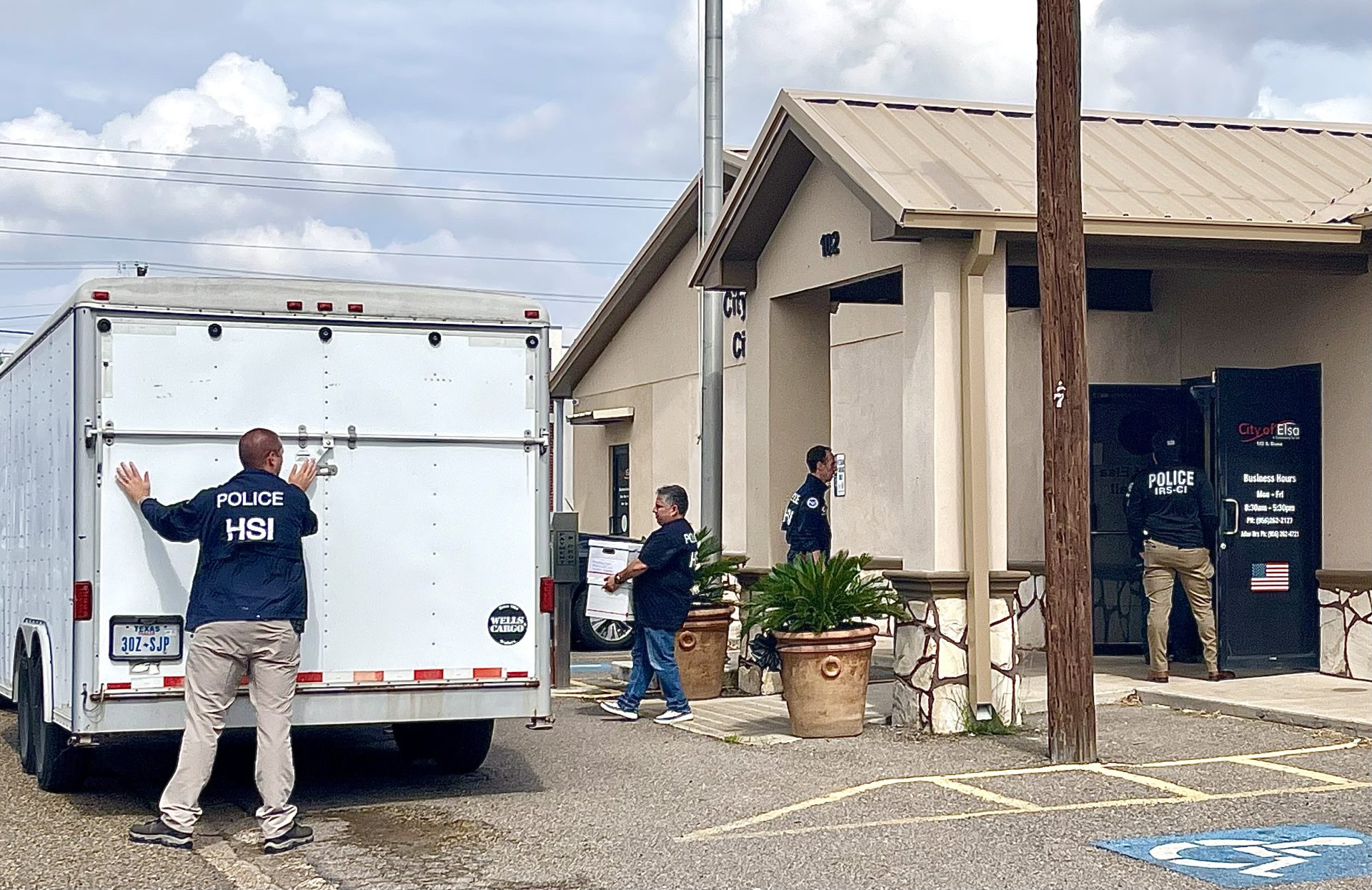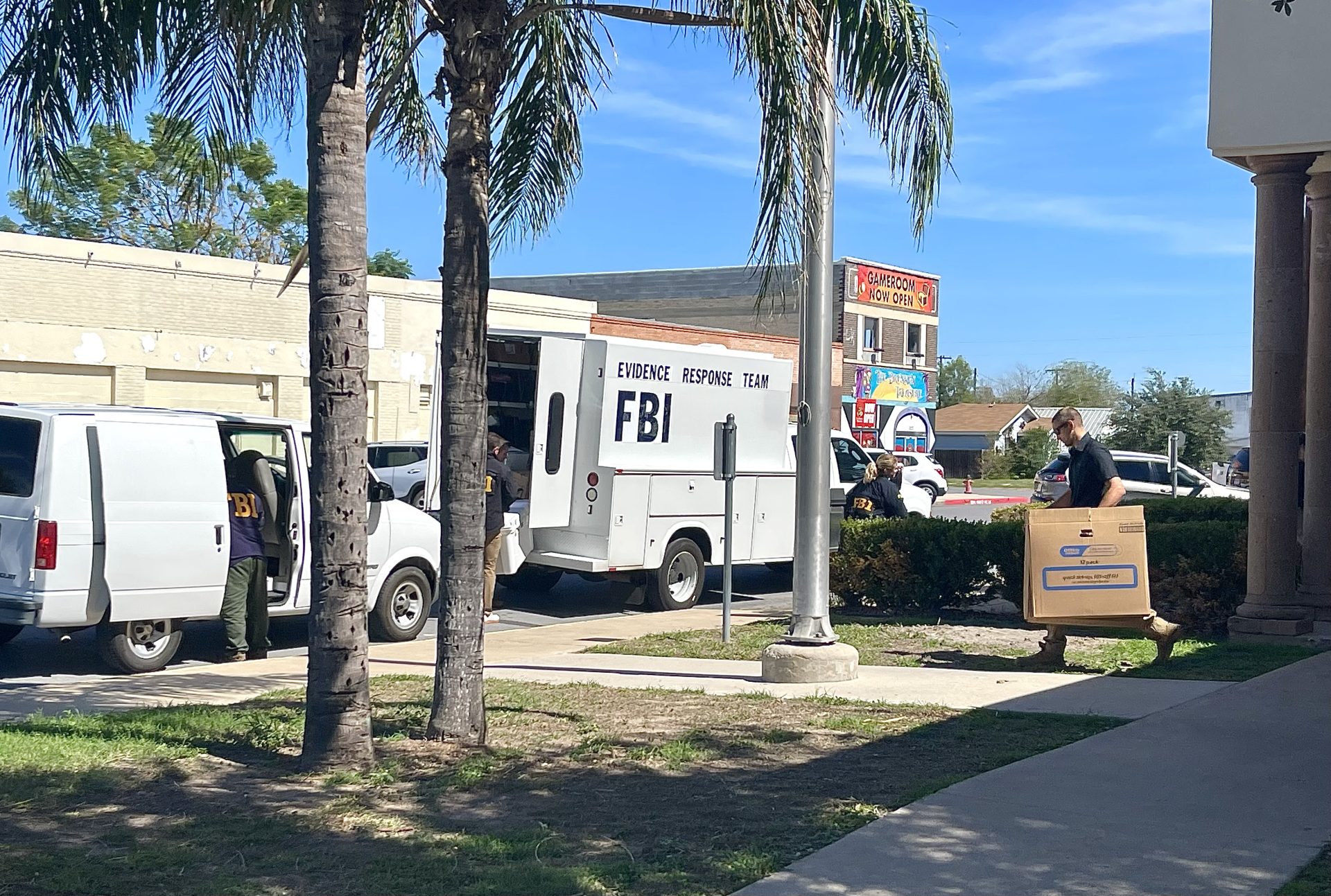
|
Only have a minute? Listen instead
Getting your Trinity Audio player ready...
|
In the wake of an FBI raid on Edcouch City Hall last month, city officials have repealed an ordinance that allowed for the regulation of electronic game rooms, more commonly known as eight-liners or maquinitas.
The Edcouch City Council voted unanimously to repeal the ordinance during a meeting on Nov. 16.
The move comes as Edcouch officials fear more legal fallout as two separate federal investigations continue in the Delta region involving potential bribery, money laundering and racketeering related to the opening of several game rooms in the region.
And it comes after Edcouch City Attorney Roel Gutierrez issued the city a letter sternly warning of its potential criminal and civil liability should the game room ordinance remain on the books.
“The attorney kind of explained that … the money laundering act and explained to them (the city council) that not knowing is not an excuse,” Edcouch City Manager Victor Hugo de la Cruz told The Monitor this week.
“It kind of places the city in a pretty bad spot if there is, in fact, something going on or something illegal going on. Not knowing is not a proper defense,” he added.
The FBI raided Edcouch City Hall on Oct. 18.
Over the course of the hourslong raid, they seized dozens of documents related to the city’s game rooms ordinance and its finances, as well as police records related to a man who is currently facing felony drug charges.
Agents also seized a number of records relating to the city’s use of Operation Stonegarden, a federally funded law enforcement grant.
While half a dozen agents went through city hall, two other teams visited the homes of de la Cruz and Edcouch Assistant City Manager Ernesto “Ernie” Rosales.
One week later, on Oct. 26, agents with Homeland Security Investigations, or HSI, conducted a similar raid of neighboring Elsa City Hall, as well as two game rooms in Elsa and Edcouch.
It was the seemingly flawless success of a number of game rooms that had opened in Elsa since that city approved its game room ordinance last September that prompted Edcouch to follow suit, de la Cruz said.
For a town of less than 2,800 people with one of the highest property tax rates in all of Hidalgo County, the prospect of generating hundreds of thousands of dollars in revenue every year via permit applications and other game rooms-related fees seemed like too good an opportunity to pass up.
Added to that were the assurances from professional and knowledgeable sounding organizations that promised to guide Edcouch in not only crafting the ordinance’s language, but in the “how-tos” of staying on the right side of the law.
But those assurances have since turned out to be worth less than the paper they were printed on, according to Gutierrez.
“We’ve been told that everything that’s been going on is legal. This gaming coalition told us that there was nothing wrong with what they were doing,” Gutierrez told the council last Thursday.
“And we believed them. But when … we have the FBI investigate, that put us on notice and they were telling us straight up that they believe that, no matter what, if there’s money being exchanged, it’s illegal gambling,” he said.
Gutierrez’s comments during the city council meeting echoed the warnings he issued in his letter to the city.
“(I)t has become apparent that the operation of these game rooms does not align with the legal assurances previously provided to the City Council by the representatives of the Greater Texas Gaming Coalition,” Gutierrez, the city attorney, stated in a two-page letter urging Edcouch to repeal the ordinance.

“The coalition’s admission of their inability to effectively police the game rooms at all times heightens the City’s exposure to legal and reputational risks. Moreover, the execution of a federal search warrant at City Hall for evidence of money laundering indicates a severe breach of trust on behalf of the administrator and the operators of the game rooms and signals potential legal ramifications under federal statutes,” he further stated.
Gutierrez’s letter goes on to explain that the Hidalgo County Sheriff’s Office has determined the game rooms to be illegal gambling establishments, and that under the Money Laundering Control Act, city officials may be held criminally liable for what happens within them, even if they had no knowledge of it.
“This standard requires us to act prudently in response to the Sheriff’s allegations to mitigate any insinuation that the City is aiding, abetting or supporting illegal activities,” Gutierrez states.
The events that have occurred over the last few weeks have left a sour taste in the mouth of de la Cruz, the city manager.
He feels let down by not just the coalition representatives — whom he says are no longer answering his calls — but also by the very local law enforcement that helped federal agents conduct the raids.
“The question could still stand and say, well, why didn’t you go ask the sheriff’s office if it was legal or illegal? Well, shoot, Elsa was open for a whole year and they didn’t do anything,” de la Cruz said of the more than half dozen game rooms that opened up in the town next door.

Edcouch had taken that as a positive sign that it was possible for a city to legally regulate game rooms and, as such, began their own ordinance process earlier this spring.
The city held three public hearings before Edcouch officials finally approved the game room ordinance this summer.
De la Cruz wishes someone from the sheriff’s department had come to speak during one of those public hearings to warn officials about the legal gray area they were stepping into.
“Had that happened, I can guarantee you that the commission would have probably voted against it,” de la Cruz said.



